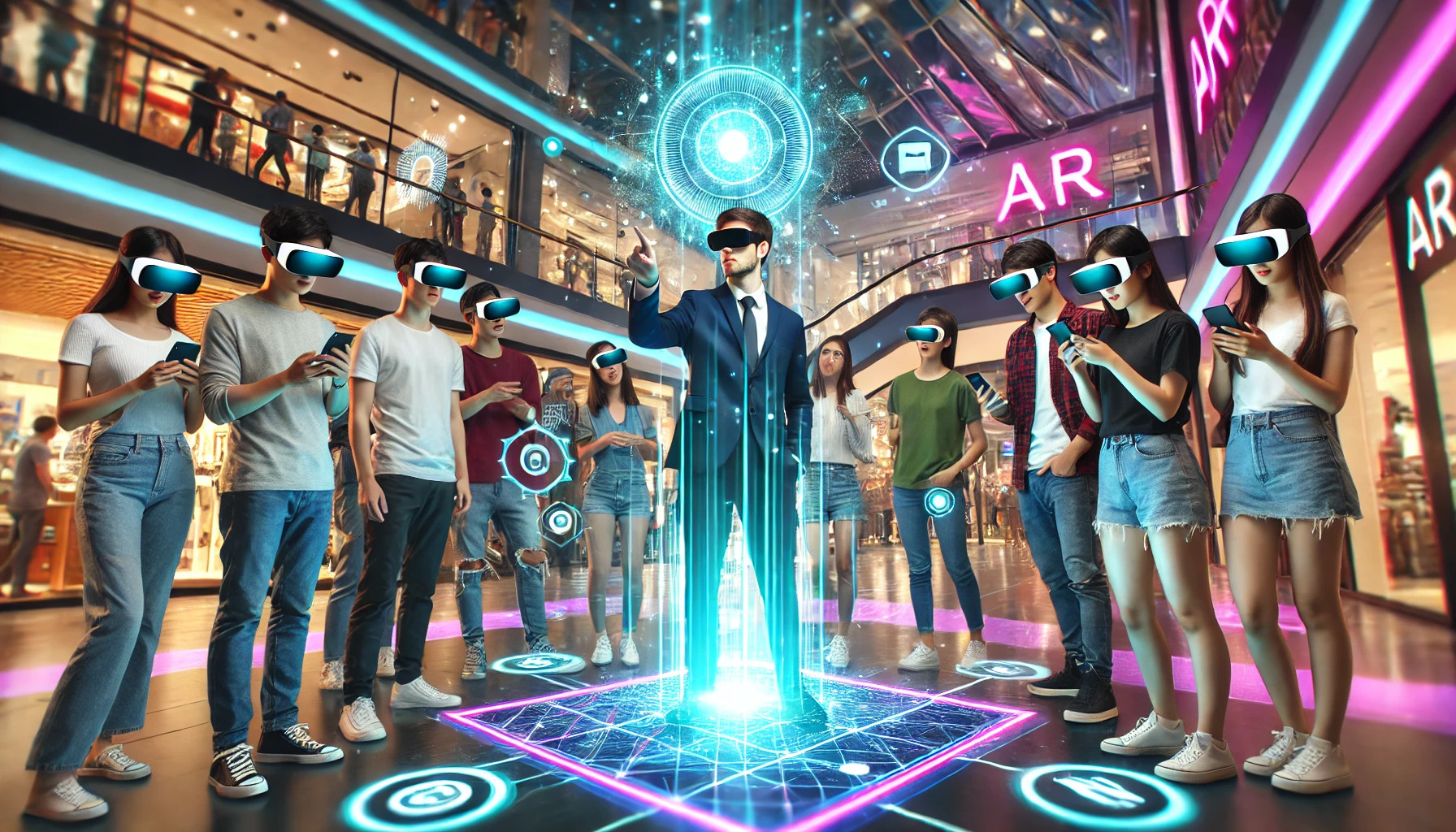
AR Promotion in Shopping Mall by chatGPT
Field marketing has undergone significant changes in recent years – and we strongly believe that this transformation will accelerate in the future. While traditional promotion activities such as tastings and samplings remain highly effective, the evolving customer structure also requires new approaches and ideas. Digitalization, sustainability, and personalized experiences are at the core of successful field marketing campaigns. But how do we see the future of this discipline?
1. Digitalization: More Data, More Efficiency
Digital technologies are revolutionizing field marketing as well. With Artificial Intelligence (AI)I-driven data, brands can now make more accurate decisions on where and when to hold promotional activities. Augmented Reality (AR) offers new ways to interact with customers, while digital reporting and real-time data enable faster campaign evaluation and optimization.
What does this mean for agencies?
AI can help select the right locations and target audiences for promotional campaigns.
Digital tools allow for more efficient training and performance tracking of promoters.
AR and Virtual Reality can enhance traditional samplings with virtual experiences.
2. Sustainability: Green Marketing is Not just a Trend but a Necessity
Consumers increasingly value sustainable products – and expect the same from marketing activities. Plastic packaging for samples or unnecessary flyers are now frowned upon. Brands must consciously embrace sustainable solutions to build and maintain credibility.
Future strategies for sustainable field marketing:
Eco-friendly materials: Biodegradable packaging or reusable sampling containers instead of plastic.
Climate-friendly logistics: Electric vehicles or bicycles for mobile promotions.
Sustainable giveaways: Practical, reusable products instead of disposable items.
3. Personalization: The Personalised Message for Every Customer
Thanks to increasingly precise data, brands can tailor promotions to individual preferences. Instead of a “one-size-fits-all” approach, the trend is moving towards providing personalized experiences which connects with people.
Future opportunities for personalization:
Dynamic product recommendations: AI enables promoters to suggest products based on customer interests.
Personalized sampling: Customers choose samples based on their tastes.
4. Hybrid Events: The Combination of Online and Offline
The boundaries between the digital and physical worlds are becoming blurred. While live events remain important, digital enhancements are gaining significance. Social media interactions, live streams, or QR codes leading to exclusive content create additional touchpoints with the brand. The digital elements make the offline elements even stronger.
Examples of hybrid field marketing actions:
Live samplings with social media integration: Influencers promote products alongside on-site tastings.
Gamification: Customers collect points at live events that they can redeem online.
Virtual trial campaigns: Customers experience products digitally before trying them physically.
5. The Role of Promoters: From Presenters to Brand Ambassadors
Promoters are no longer just sample distributors – they are the face of the brand. We already believe in that, and place more emphasis on high-quality training to create authentic experiences.
Future-Proof Field Marketing Relies on Innovation
Field marketing remains one of the strongest element in the marketing mix – but only if it adapts to changing conditions. Digital tools, sustainability, and personalization will determine the success of future campaigns. Brands that develop creative and innovative concepts will benefit in the long run.
Those who think ahead today, explore new technologies, and integrate sustainable solutions will continue to make a difference with field marketing in the future.